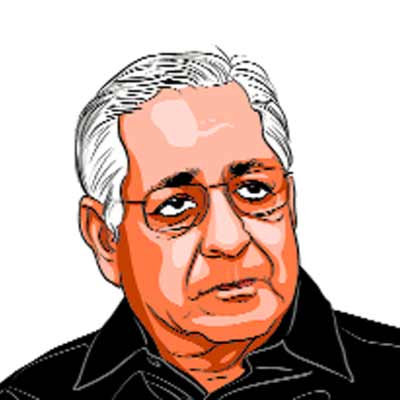Opinion Right of negative voting
Under the present law there is no right of negative voting which enables a voter to refuse to vote for a particular candidate or to cast his vote against all candidates.
Under the present law there is no right of negative voting which enables a voter to refuse to vote for a particular candidate or to cast his vote against all candidates. This is different from a voter refusing to exercise his franchise at all. In a writ petition filed in the Supreme Court by Peoples Union for Civil Liberties (PUCL) it is submitted that a citizens right to vote at an election in secrecy includes the right of negative voting qua all candidates. Another plea is that the Election Commission (EC) is bound to provide appropriate mechanism in the Electronic Voting Machines (EVM) for effective exercise of such a right.
It is noteworthy that the EC in its letter dated 10.12.2001 supported the electors right of negative voting. Indeed,counsel for the Commission Meenakshi Arora submitted before the Supreme Court that the PUCL could seek directions for appropriate modification in the EVMs to enable the electors to exercise their right of negative voting. The Union of India contended that the right to vote is a mere statutory right and it is neither a fundamental right nor a constitutional right.
A Division Bench of the Supreme Court comprising Justices B.N. Agrawal and G.S. Singhvi had to deal with this issue. Various judgments were cited by the parties. Justice Singhvi elaborately referred to previous Supreme Court judgments and after an excellent analysis succinctly enunciated the principles laid down in them. The Division Bench however found it difficult to reconcile the divergent observations made on this issue in different three judge Bench decisions. The Bench felt that an authoritative exposition of law by a larger bench was needed on this issue as also about the amplitude of the power of the EC. Hence it directed the matter to be placed before the CJI for appropriate orders. It is hoped that these issues,which are vital to our democracy,are decided with the utmost expedition especially in view of the forthcoming general elections.
Breather for doctors
Justice Markandey Katju in his recent judgment has neatly enunciated the principles of medical negligence after comprehensively surveying various decisions on the subject. Justice Katju bemoans that today the medical profession has to an extent become commercialised and there are many doctors who depart from their Hippocratic oath. However,he rightly points out that the entire medical fraternity cannot be branded as lacking in integrity or competence because of some bad apples. The judgment reaffirms the legal position that a medical practitioner must exercise a reasonable degree of care,neither the very highest nor a very low degree of care. A medical practitioner is not liable for negligence simply because of an error of judgment in choosing one reasonable course of treatment in preference to another. He would be liable only where his conduct fell below that of the standards of a reasonably competent practitioner in his field. Sometimes despite their best efforts the treatment of a doctor fails,sometimes despite the best effort of a surgeon,the patient dies. That does not mean that the doctor or the surgeon is guilty of medical negligence,unless there is some strong evidence to establish negligence. It should be remembered that a reasonable person is not an error free person.
Like all professionals,doctors too can make errors of judgment but as Justice Katju points out,if they are punished for this no doctor can practice his vocation with equanimity. Indiscriminate proceedings and decisions against doctors are counterproductive and serve society no good. They inhibit the free exercise of judgment by a professional in a particular situation. The judgment concludes with the assurance that doctors and nursing homes/hospitals need not be unduly worried about the performance of their functions. The law is a watchdog,and not a bloodhound,and as long as doctors do their duty with reasonable care they will not be held liable even if their treatment was unsuccessful.
This well-balanced judgment should provide much needed relief to doctors against frivolous and inflated claims for damages by bloodhounds.




